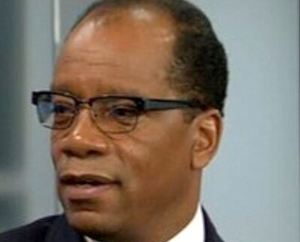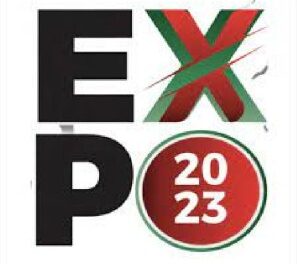By Megan Sayles
AFRO Staff Writer
msayles@afro.com
With Maryland on the brink of a nearly $3 billion budget crisis, Gov. Wes Moore shared a preview of his investments and policy proposals to spur economic growth in the state. The announcement came on Jan. 14, a day before he is set to release his full proposed budget.

Credit: AFRO Photo / Megan Sayles
The commitments include more than $750 million in funding for economic and workforce development, with $128.5 million earmarked for targeted investments that build on Maryland’s dominant industries, make the state’s business ecosystem more accessible and grow talent in the state. The targeted investments are expected to generate $515.6 million in economic activity and support more than 2,500 jobs, which would account for $210.2 million in labor income.
“If you’re not investing, you’re simply managing decline,” said Moore. “I refuse to have this time, in this moment with the talent that we have on the field, for Maryland to be a state that is simply going to manage decline.”
According to Moore, Maryland’s economy has been stagnant for more than a decade. Before he became governor, he said, over a seven-year period the state’s budget had grown by 70 percent while gross domestic product (GDP) grew just 3 percent.
Moore explained that Maryland is currently battling two storms: One is the budget deficit, which he deemed the greatest fiscal crisis the state has encountered in two decades. The second is the incoming presidential administration, which has intentions to shrink the federal workforce that many Marylanders rely on for employment.
Making it easier for individuals to start and grow businesses in the state and investing in key industries, like life sciences, aerospace, defense and biotech, are part of Moore’s solution to these storms.
“To be clear: this is not just about ways that we are going to put money in and invest money,” said Moore. “It’s about prioritizing the leverageable assets that need to be supported because not only are they the globe’s best, they are tethered to us.”
The largest investment on the agenda is $27.5 million to transform Maryland into the “Capital of Quantum.” Quantum technology is considered the way of the future because it utilizes the unique power of tiny particles, like photons and electrons, to create extremely powerful computers, ultra-secure communication systems and precise sensors. This unleashes possibilities to streamline industries, including healthcare, energy and cybersecurity.
The initiative, which is valued at $1 billion, is a partnership between the state of Maryland, University of Maryland and IonQ, a quantum computing company in College Park, Md.
“The technology that we are talking about here is actually unimaginable computing power. It would take 300 trillion years in the future to be able to do what a single processor can do, and that’s just the beginning,” said Peter Chapman, CEO of IonQ. “The kinds of things we expect to do are to power pharma, optimization problems and AI. We’re also expanding into quantum networking to build the quantum internet of the future.”
Other investments in Moore’s agenda include: $25 million to attract economic development and business relocation and expansion across the state; $15 million to redevelop Tradepoint Atlantic; $10 million to support grants for infrastructure projects in technology; $10 million to fund transit-oriented development; $5 million to build a pipeline for the cybersecurity workforce; and $6 million to support smart manufacturing for small and mid-sized businesses.
In addition to these investments, Moore announced four legislative proposals. The DECADE Act would rework and rebrand the state’s business development programs. The Housing for Jobs Act would increase the supply of homes to address affordability. The RAISE Act would foster new pathways to high-paying jobs through registered apprenticeships. The Procurement Reform Act would modernize the state’s contracting processes to improve competition, accountability and access for small businesses.
Moore also noted that he does not plan to raise sales or property taxes to address the budget shortfall. Instead, 82 percent of Marylanders will receive a tax cut or have no change to their taxes. He’s also planning for a corporate tax cut, though he did not provide details.
“Anyone who simply thinks that you can tax your way to prosperity does not know what they’re talking about,” said Moore. “Anyone who thinks you can just cut your way to prosperity does not know what they’re talking about either. The answer is, as a state, we need to grow.”
The post Gov. Wes Moore reveals economic growth agenda for 2025 appeared first on AFRO American Newspapers.











